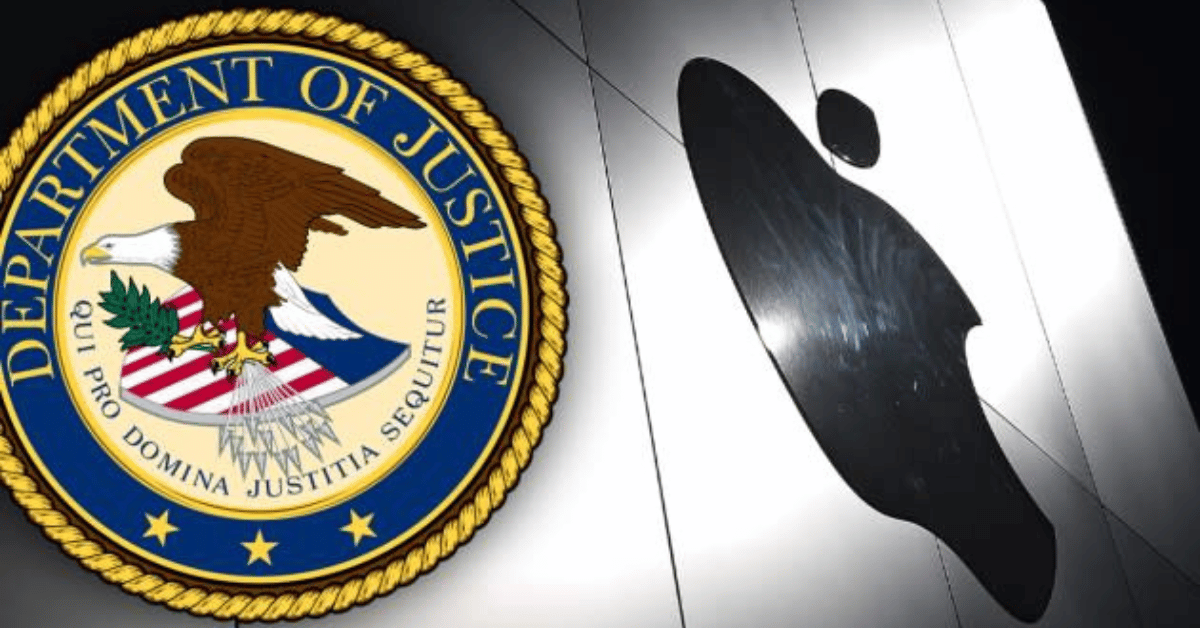The U.S. Department of Justice (DOJ) filed a complaint against Apple Inc. (AAPL) on Thursday, claiming the tech giant violated antitrust laws with its strict iPhone and App Store restrictions. This is a huge development that has sent shockwaves across the tech industry. Concerns regarding Apple’s dominance in the smartphone industry and its control over the distribution of software through its App Store platform are growing, which is why this legal action has been taken.
The litigation, filed in the U.S. District Court for the District of New Jersey, has the backing of sixteen state and district attorneys general, highlighting the extensive regulatory scrutiny that the Cupertino-based business is subject to. The central claim of the DOJ complaint is that Apple’s business tactics restrict innovation in the app ecosystem, make it difficult for customers to switch handsets, and charge developers, companies, and customers excessive costs.
Attorney General Merrick Garland stated that “consumers should not have to pay higher prices because companies violate antitrust laws.” The Department of Justice (DOJ) claims that Apple has unfairly retained its monopoly on the smartphone industry by enforcing restrictive contractual clauses and denying developers essential access points, especially inside the App Store.
Apple’s shares closed at $171.37 after plunging 4.1% in response to the news. Investor concerns about the legal problems the company confronts and the potential effects on its business operations have resulted in an 11% fall in the company’s stock so far this year. In an effort to bring competition back to the smartphone industry, the complaint holds Apple accountable for engaging in monopolistic activities in violation of Section 2 of the Sherman Antitrust Act.
Assistant Attorney General Jonathan Kanter highlighted how Apple has adopted a “Whac-A-Mole” strategy, which involves imposing heavy laws and regulations, in response to threats from competitors. According to Kanter, Apple was able to reduce competition from competing technologies, charge developers excessive amounts, and increase costs from customers through these strategies.
Beyond the DOJ case, Apple is facing other difficulties as a result of poor iPhone sales in China and backlash to its management of AI tactics. To make matters worse for the corporation in terms of regulations, it is also facing litigation in Europe for its App Store policy.
The latest action taken by US regulators against Big Tech companies suspected of carrying out anticompetitive behavior is this complaint against Apple. The Federal Trade Commission (FTC) is pursuing antitrust actions against Amazon.com (AMZN) and Facebook parent Meta Platforms (META), while the Department of Justice (DOJ) is now suing Alphabet (GOOGL), the parent company of Google, for allegedly abusing its dominance in online advertising.
Investors are keeping a careful eye on the effects of these legal battles on Apple’s growth prospects, as the company’s Composite Rating, as reported by IBD Stock Checkup, is a poor 64 out of 99. The resolution of the Department of Justice’s case against Apple may significantly impact the technology sector and alter the competitive environment in the smartphone market.
As the legal dispute plays out, all eyes are on Apple as it makes its way through stormy waters under increasing regulatory scrutiny and growing worries about its business practices.
Also Read: Executive vice chair D.R. Horton sells $3.9M worth of company stock





